Mexico: Mérida
-
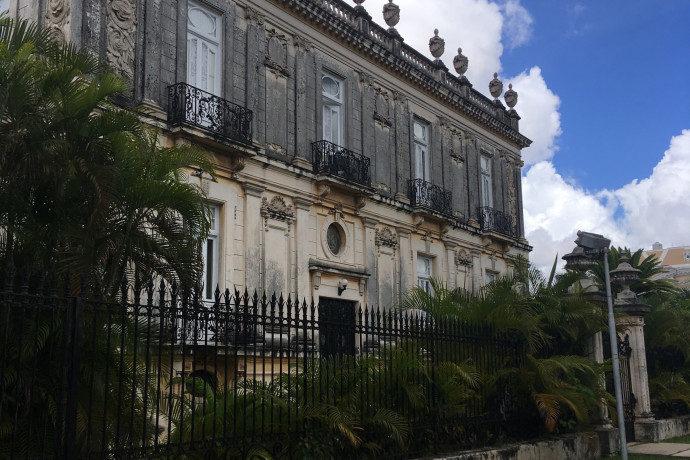 .
. -
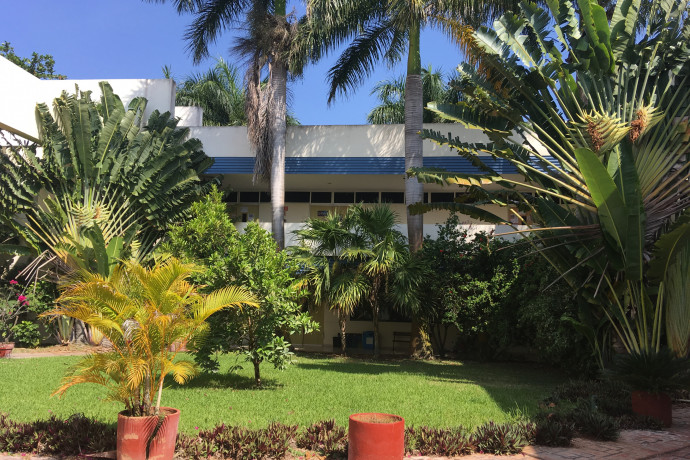 .
. -
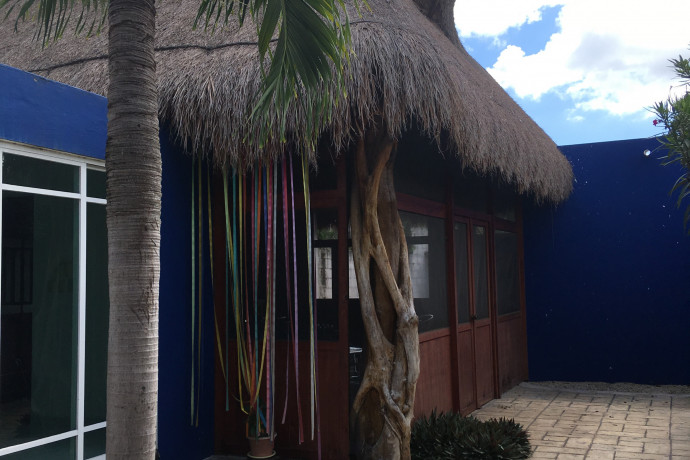 .
. -
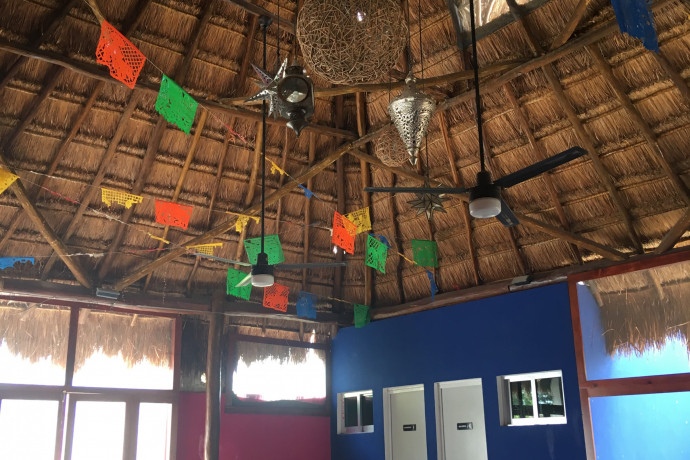 .
. -
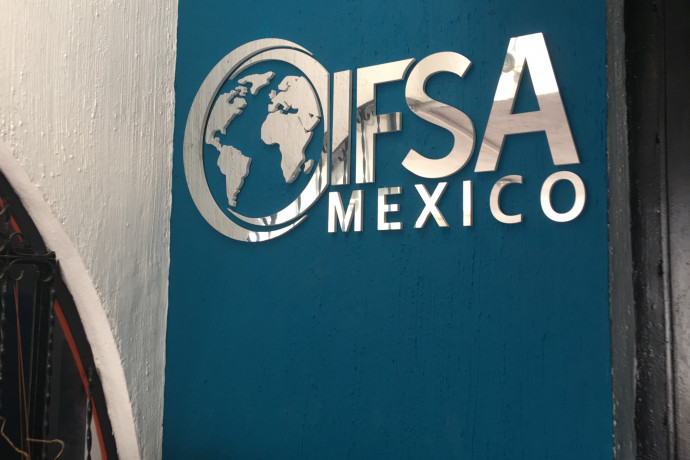 .
. -
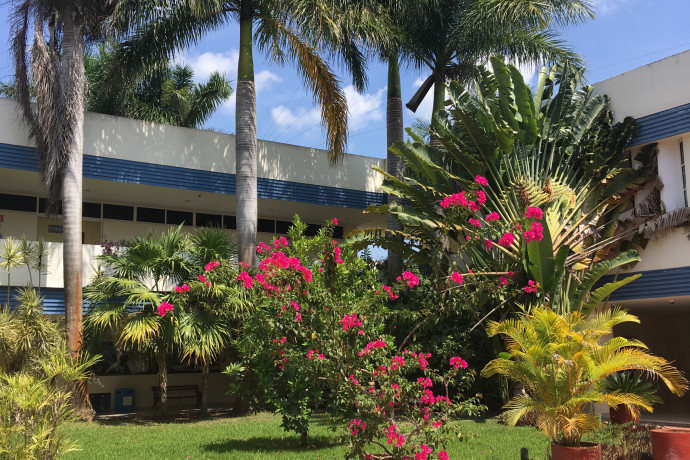 .
.
| Program Snapshot | |
| Semester: | Fall, Spring, or Full Year |
| Offered: | Annually |
| Estimated Dates: | Fall: Early August to early December, Spring: Early January to late May |
| Program Focus: | Language Intensive |
| Prerequisites: | Minimum of 2.5 GPA. Completion of Spanish 321. Students must satisfy the Words and Numbers CORE requirement before participating in an overseas program. |
| Housing: | Host Families |
|
Campus Contacts: |
Magali Rabasa Assistant Professor of Hispanic Studies mrabasa@lclark.edu, 503-768-7482 |
Program Design
In cooperation with the Institute for Study Abroad (IFSA), this program provides language intensive academic and experiential learning through a rigorous curriculum comprised of university courses and program-specific courses.
The IFSA program offers students the opportunity to take classes at two local universities (Universidad Modelo, a small private university, and the Universidad Autónoma de Yucatán, a major public research university) as well as the mandatory Community and Culture course and Spanish language courses for those at the intermediate level (determined by a written and oral language evaluation completed upon arrival). In consultation with the academic director, students can choose to replace one of their university courses with a directed research project over the course of the semester that culminates in an extensive written project as well as a presentation. In addition to the academic coursework, students can choose to include a semester-long not-for-credit volunteer experience ( in local schools, community organizations, NGOs, local clinics and hospitals, local cooperatives, museums, etc.) as part of their weekly schedules.
Program Location: In Mérida, Yucatán, students explore how Mexico balances 21st century realities with the enduring influence of the pre-Hispanic Mayan empire. Through the Mérida Universities Program, which includes multi-day excursions to Mexico City and San Cristobal de las Casas, Chiapas, students interact with complexities of the local culture and learn how the Mayan influence is threaded differently throughout Mexico.
Onsite Staff: The Resident Director of IFSA Mérida is Rodrigo Diego Rivera Hernandez. Rodrigo holds a bachelor’s degree in political science from the Universidad Nacional Autónoma de México and a postgraduate program in cultural affairs from the Universidad Autónoma Metropolitana. The Student Experience Coordinator is Valeria Guemez Graniel. Valeria earned her master’s degree in public policy and administration at the Center for Research and Teaching in Economics (CIDE), building upon her bachelor’s degree in social anthropology at the Autonomous University of Yucatán.
Academics
Requirements Fulfilled:
General Education - This program fulfills the Global Perspectives general education requirement for students who successfully complete 8 or more semester credits.
Major/Minor Requirements: This program fulfills the overseas study requirements for the Hispanic Studies major, the World Languages Major with Spanish as the primary language, the Hispanic Studies minor, and the Latin American Studies minor.
Credits: Credit earned varies based on courses completed, but students may earn up to 19 credits. Overloads are not permitted.
Curriculum: Students take 5 courses (3 credits each), all taught exclusively in Spanish, comprised of the following:
- One required Community & Culture course that includes all participants in the program
- One Spanish Language course
- Students may earn up to an additional 13 U.S. credits of direct enrollment courses at the Universidad Autónoma de Yucatán or Universidad Modelo, or they may combine courses at the universities with an optional directed research course offered by the study center.
A minimum of two academic courses should be direct enrollment courses taken at the local universities associated with the program.
Students who have native or near—native Spanish reading and writing skills and would like to be considered for exemption from the Advanced level Spanish course may speak with the Program Advisor. Students who have qualified for exemption from the Spanish course may earn up to 16 additional US credits from direct enrollment in the Universidad Autónoma de Yucatán or Universidad Modelo, or they may combine courses at the universities with an optional directed research course offered by the study center.
Excursions: The excursions are all designed to include a rigorous academic dimension, in tandem with the Community and Culture course. The program includes two day-trip excursions to nearby archaeological sites, Uxmal and Chichén Itzá. The program also includes three multi-day excursions. The first is to a small Mayan community two hours east of Mérida, Yaxunah. During the excursion, students stay with local families and engage in various workshops with local families and in particular local youth (14-25 years old) around issues of higher education and local sustainability efforts. The second excursion is a trip to San Cristóbal de Las Casas, Chiapas, where students visit nearby indigenous communities and learn extensively about the cultural history of the region. The final excursion is to Mexico City, where students visit many museums, cultural sites, and gain an understanding of the diversity and complexity of Mexico as it is embodied and represented in the capital city.
Student Life
Housing: Students stay with local families in the Járdines de Mérida neighborhood where the IFSA office is located. Only one student stays with each family, and all meals are provided. Given the local customs around extended family, students regularly interact not only with those family members they live with (often including adult children), but also extended family during regular family gatherings. The vast majority of the families have been hosting IFSA students regularly for at least 5 years.
Extracurricular Activities: In Merida, Students participate in Cultural events and excursions, including a multi-day excursion to archaeological sites, Mexico City and San Cristobal de las Casas, Chiapas. Students enjoy free evening concerts and a thriving nightlife in a student-friendly atmosphere.
Volunteer Opportunities: Volunteering while studying abroad in Mérida is an enriching experience, both personally and academically. Students report that even volunteering a few hours per week enhanced their study abroad experience by providing them with access to the local culture and a deeper understanding of problems that face Mérida’s inhabitants on a daily basis. Several volunteering opportunities exist in Mérida. Placements are made after you arrive onsite and are contingent upon a personal interview, your language level and available time commitment. IFSA has prepared a list of places where you, as a visiting student, can volunteer to do social service. While this is purely optional, a commitment on your part is needed in order to arrange a placement. Upon completion of your period of volunteerism, you will be issued a certificate indicating the number of hours you dedicated and the type of work you completed. Volunteering does not earn academic credit and will not appear on your Butler University transcript. Examples of places where students can be placed:
- Ayuntamiento: Government-sponsored program providing English classes to disadvantaged communities in and around Mérida.
- Centro de Cultura del Niño Yucateco (CECUNY): Government agency that provides creative programming and workshops in dance, art, literature, chess, choir and music for children between the ages of four and 12.
- Colegio Americano: Private school with kindergarten through high school grades and an excellent English program.
- Colegio Renacimiento Primaria: School with preschool through middle school grades, including special education and a bilingual program; curriculum also focuses on science, technology and culture.
- Hoy en tu comunidad: A private organization supported by the Universidad Autónoma de Yucatán organized for students from different colleges to provide medical care and public health eduction to communities in and around Mérida.
- Instituto para el Desarrollo de la Cultura Maya del Estado de Yucatán (INDEMAYA): Government agency designed to provide training and support for the Mayan communities in and around Mérida, as well as maintain and promote Mayan culture and language.
- Pronatura: Private organization that works to conserve the ecosystem of the Yucatán peninsula and promote a healthy relationship between society and nature.
- Secretaria de Medio Ambiente y Recursos Naturales (SEMARNAT): Governmental organization that Works with Mayan cooperatives to create and manage tourist sites in their communities.
- Unidad de Atención Sicológica, Sexológica y Educativa para el Crecimiento Personal (UNASSE): Human rights organization founded in 1987 with the goal of providing free support for a variety of legal and public health issues, including sexual abuse, violations of workers’ rights, prevention and/or treatment of cancer and HIV/AIDS.
- Vida Familia A.C. (VIFAC): A not-for-profit organization that provides workshops for pregnant women which aim to teach them the skills they need to be self sufficient and provide a better quality of life for their children.
Cost
2023-2024 Fee Breakdown*
Total Fee (includes Tuition, Program Fee, and Health & Wellness Fee): $39,385
Tuition: $30,958
Program Fee: $8,390
Health & Wellness Fee: $37**
Included in the program fee are room/housing, board/meals, and administrative fees. Not included are airfare, passport and visa expenses, primary insurance coverage, photographs, books, immunizations, and incidentals. *Fees are updated every February for the following academic year.
**The Health & Wellness Fee supports the operations of Wellness Services staff in delivering pre-program orientation services, as well as in providing health-related consultation regarding participant health needs. All students in the College of Arts and Sciences pay a mandatory fee of $37 per semester.
Stipend: Students will receive a stipend to cover the cost of meals and transportation costs not covered by the program fee.
Estimated Airfare (Round Trip PDX to MID): $400-$700
Estimated Health Insurance Fee: $1,943.50
All students participating in overseas programs are automatically enrolled in iNext, a supplemental travel insurance program. The fee for iNext is covered in the program cost. However, students are also required to have comprehensive health insurance during their time abroad. All students participating in overseas programs, both abroad and domestic, are automatically enrolled in the College’s student health insurance program. Similar to a regular semester on-campus, students participating in overseas programs may waive enrollment in the student health insurance program if they have other comprehensive health insurance (e.g., through a parent, guardian or employer) that 1) provides coverage for them in the geographic region in which they will be studying and 2) includes mental health benefits. Click here for more information regarding health insurance & overseas programs.
Program Preparation
Application Process: This program has a dual application process. Student must first submit a Lewis & Clark Application. Once admitted by Lewis & Clark, the students will receive instructions for submitting their secondary application to IFSA and will receive a separate notification letter of admittance. Please keep a digital copy of your essays and other application materials as you will need to submit these similar materials to IFSA. Please note that this secondary application process can be as late as the semester preceding your scheduled participation.
For more information about the application process, click here.
Travel: Students usually fly into the Mérida International Airport (MID), where they are met by IFSA staff and transported to orientation.
Visa: More information will be provided upon admission to the program.
Country-Specific Health Information: Click here to view specific health information for people traveling to Mexico.
State Department Country Information: Click here to visit the State Department’s Mexico page.
Overseas and Off-Campus Programs is located in room 206 of Albany Quadrangle on the Undergraduate Campus.
MSC: 11
email overseas@lclark.edu
voice 503-768-7295
fax 503-768-7300
Director Blythe Knott
Overseas and Off-Campus Programs
Lewis & Clark
615 S. Palatine Hill Road MSC 11
Portland OR 97219